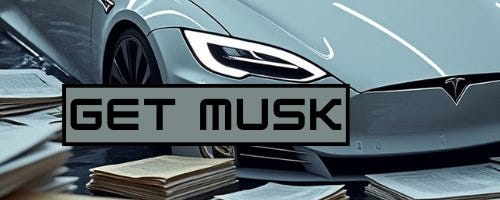Get Musk
Activist Judge Shamelessly Disregards Legal Precedent and Rules Against a Tesla Supermajority Vote
The Lawfare Against Elon Musk
Tuesday, December 3rd, 2024: By, Walter Curt
The Delaware Chancery Court's decision to rescind Elon Musk's 2018 compensation package and impose a staggering $345 million in legal fees on Tesla is nothing short of a politically motivated assault on corporate governance and shareholder autonomy.
This ruling reeks of judicial act…




